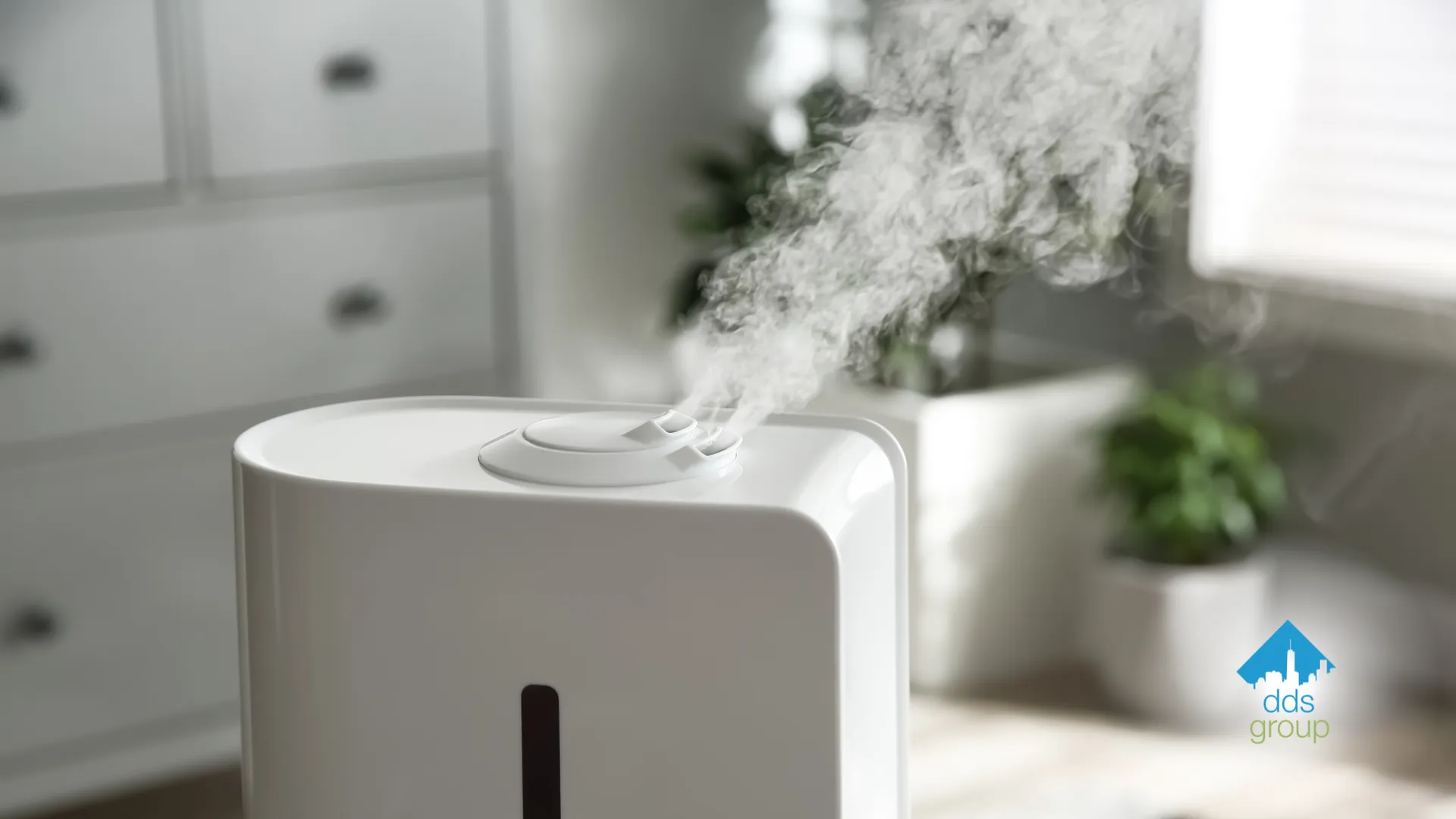
Source: Dr. Marketing
The arrival of winter brings a mix of joys and challenges. Crisp, cool air, and cozy indoor gatherings define the season, but it also introduces unique hurdles for maintaining good health—including oral health. One of the most common yet overlooked winter issues is dry mouth, a condition that can cause discomfort and lead to more serious oral health concerns if not addressed.
Dry mouth, also known as xerostomia, occurs when your salivary glands do not produce enough saliva to keep your mouth moist. During winter, colder air, indoor heating, and seasonal habits such as drinking less water and indulging in warm caffeinated drinks exacerbate this condition. While it may seem like a minor annoyance, dry mouth can increase the risk of cavities, gum disease, and bad breath, making it essential to address the issue early.
At DDS Group in Lower Manhattan, we understand the impact that dry mouth can have on your oral health and overall well-being. That is why we are here to help you navigate the colder months with simple, effective strategies to maintain oral hydration and prevent discomfort. In this guide, we will explore why dry mouth is more common in winter, how it affects your oral health, and the steps you can take to keep your smile healthy, comfortable, and confident throughout the season.
Why Does Dry Mouth Happen More in the Winter?

Winter’s colder temperatures and environmental changes make dry mouth more prevalent. While dry mouth can occur year-round, winter introduces unique factors that exacerbate the problem:
- Colder Air: Cold outdoor air holds less moisture, making it easier for your mouth to dry out, especially during outdoor activities.
- Indoor Heating: Heating systems create warm, dry indoor environments that reduce overall humidity levels, intensifying dryness in your mouth and throat.
- Reduced Hydration: In the winter, people tend to drink less water compared to warmer months, often opting for hot beverages like coffee and tea, which can be dehydrating.
- Seasonal Illnesses: Winter colds, the flu, or sinus infections can cause nasal congestion, forcing you to breathe through your mouth, which dries it out further.
Understanding these factors is the first step in tackling dry mouth and protecting your oral health during the winter months.
The Effects of Dry Mouth on Oral Health

Saliva plays a crucial role in keeping your mouth healthy. It helps wash away food particles, neutralize acids, and prevent bacterial growth that can lead to cavities and gum disease. When your mouth is dry, these protective functions are compromised, leading to several potential issues:
- Increased Risk of Cavities: A dry mouth allows bacteria to accumulate, increasing the likelihood of tooth decay.
- Bad Breath: Without enough saliva to wash away bacteria, you may experience persistent bad breath.
- Gum Irritation: Dry gums can become inflamed and more prone to irritation, leading to discomfort or bleeding.
- Difficulty Eating and Speaking: A lack of saliva can make it harder to chew, swallow, or even speak comfortably.
At DDS Group, we are here to help you manage these challenges by addressing dry mouth before it leads to more serious problems.
Tips to Prevent Dry Mouth in the Winter

Preventing dry mouth requires a combination of lifestyle adjustments, hydration habits, and targeted oral care. Here are some effective strategies to keep your mouth hydrated during the colder months:
Stay Hydrated
Drinking enough water is the simplest and most effective way to combat dry mouth. Aim for at least 8 glasses of water a day, and remember to drink consistently throughout the day, even if you do not feel thirsty.
- How We Can Help: At DDS Group in Lower Manhattan, we can assess whether your hydration habits are sufficient and provide additional tips to ensure you are drinking enough water to support your oral health.
Use a Humidifier
Adding moisture back into your indoor environment can make a big difference. A humidifier can help counteract the dryness caused by heating systems, creating a more comfortable and saliva-friendly atmosphere.
- How We Can Help: If you are experiencing persistent dry mouth despite making environmental changes, we can recommend products like saliva substitutes or oral moisturizers to keep your mouth hydrated.
Chew Sugar-Free Gum or Suck on Sugar-Free Lozenges
Chewing gum or sucking on lozenges stimulates saliva production, helping to keep your mouth moist. Choose sugar-free options to avoid increasing your risk of cavities.
- How We Can Help: Our team can recommend products specifically designed for dry mouth relief, ensuring they are safe and effective for your oral health needs.

Limit Dehydrating Drinks
Hot beverages like coffee, tea, and alcohol are comforting during the winter, but they can have a dehydrating effect. Limit these drinks, and if you indulge, follow them with a glass of water to balance hydration levels.
- How We Can Help: During your visit, we will evaluate whether dietary habits are contributing to your dry mouth and offer tailored recommendations to adjust your routine while maintaining your enjoyment of seasonal treats.
Avoid Smoking and Excessive Breathing Through Your Mouth
Smoking and mouth breathing significantly worsen dry mouth by reducing saliva production and increasing moisture loss. If you are congested due to a cold, use a saline nasal spray to help you breathe through your nose instead.
- How We Can Help: If dry mouth is affecting your oral health, our team can provide treatments and advice to protect your teeth and gums while you work on improving your habits.
Maintain a Strong Oral Hygiene Routine
Good oral hygiene is essential for managing dry mouth. Brushing twice daily with fluoride toothpaste and flossing once a day helps remove bacteria and prevent the buildup of plaque, which can become a bigger problem when saliva levels are low.
- How We Can Help: At DDS Group, we offer professional cleanings and fluoride treatments to strengthen your teeth and protect against decay caused by dry mouth.
Professional Care for Persistent Dry Mouth

If your dry mouth symptoms persist despite making lifestyle changes, it is important to seek professional care. Chronic dry mouth can be a sign of underlying conditions such as medication side effects, autoimmune disorders, or other health issues that require attention.
At DDS Group, we take a comprehensive approach to diagnosing and treating dry mouth. Our team will evaluate your oral health, identify potential causes, and develop a personalized care plan to address your symptoms and protect your teeth and gums.
Why a Winter Dental Check-Up Matters

Scheduling a dental check-up during the winter months is a proactive way to stay ahead of dry mouth and its associated risks. Regular cleanings and exams allow us to detect and address issues early, helping you maintain a healthy, comfortable smile throughout the season.
What We Offer
- Tailored Advice: We will provide personalized tips to help you manage dry mouth based on your specific needs and lifestyle.
- Fluoride Treatments: These strengthen enamel and help protect against decay caused by reduced saliva.
- Saliva Substitutes and Moisturizers: We can recommend products to relieve dryness and keep your mouth comfortable.
Embrace the Season with Confidence

Winter’s chill may bring unique challenges for your oral health, but dry mouth does not have to be one of them. By understanding the causes and effects of winter dryness and taking proactive steps to stay hydrated, you can maintain a healthy smile all season long. Simple changes, such as drinking more water, using a humidifier, and being mindful of your diet, can make a significant difference.
At DDS Group in Lower Manhattan, we are dedicated to helping you protect your oral health year-round. Whether you need professional guidance for managing dry mouth or a winter check-up to ensure your teeth and gums are in top shape, we are here to provide expert care tailored to your needs.
Do not let dry mouth dampen your winter enjoyment. Contact us today to schedule your appointment and learn more about how we can help you maintain optimal oral health. Let us work together to ensure your smile stays fresh, comfortable, and radiant—no matter how cold the season gets.






